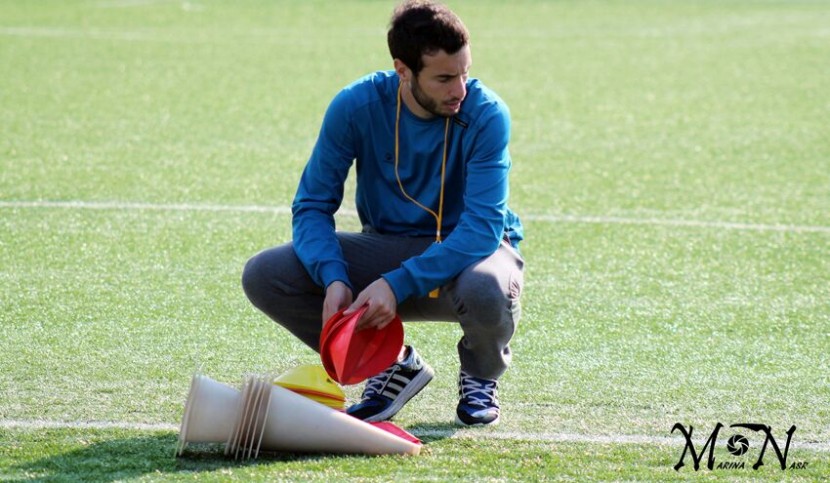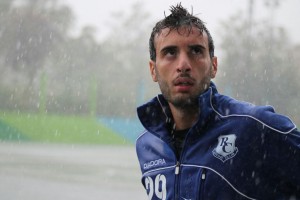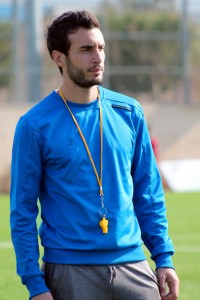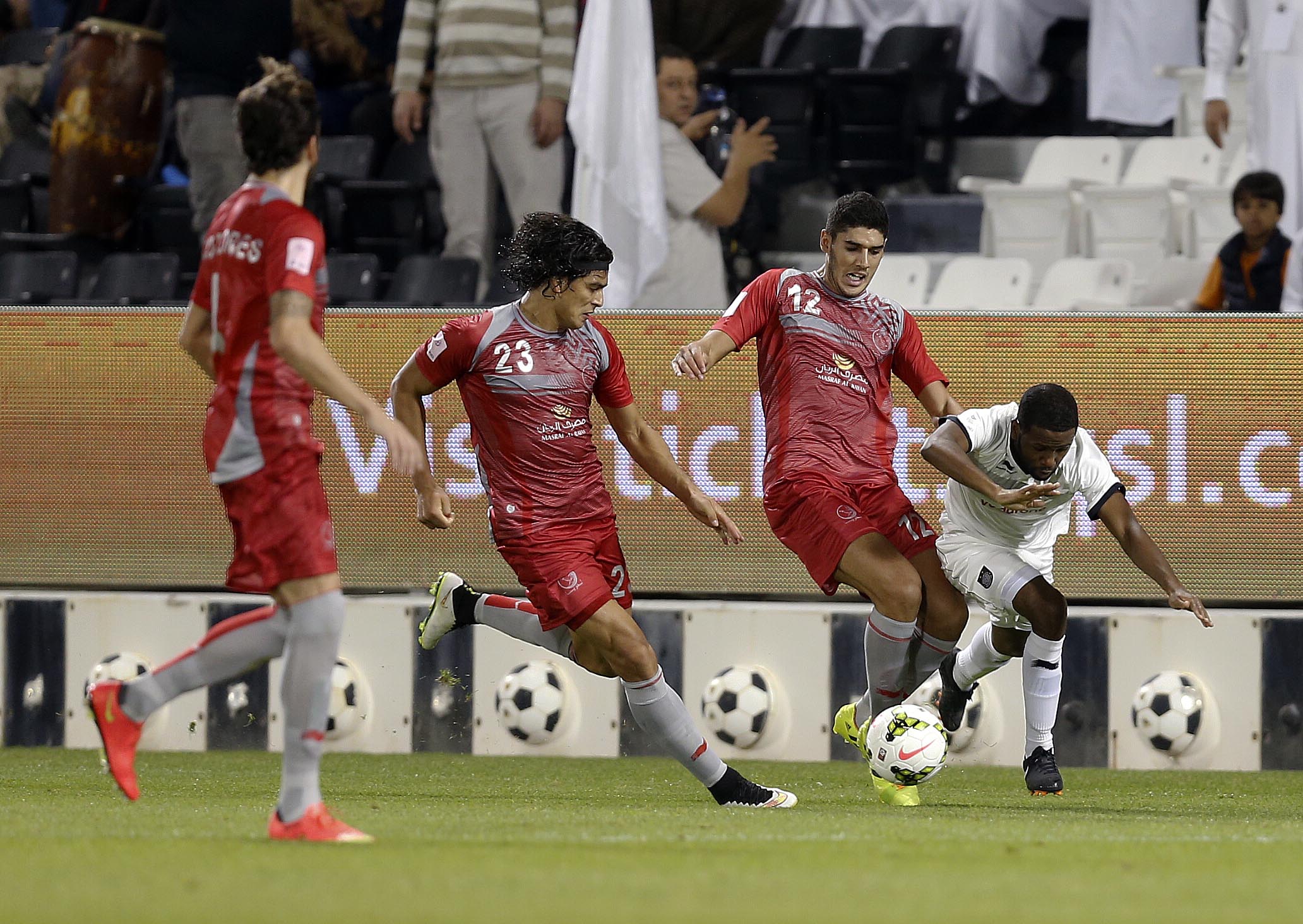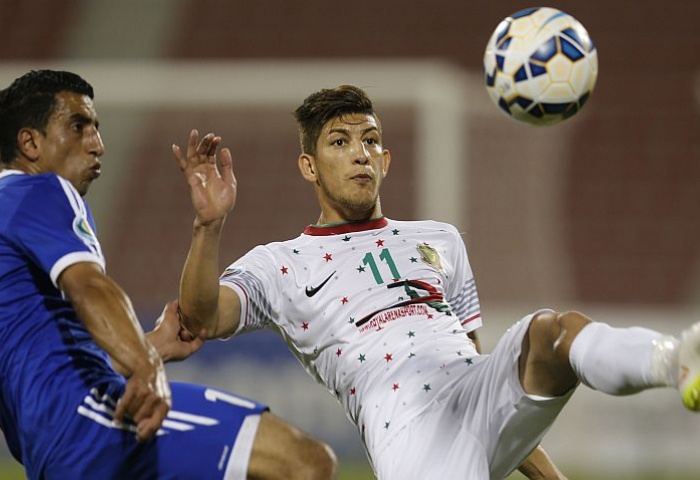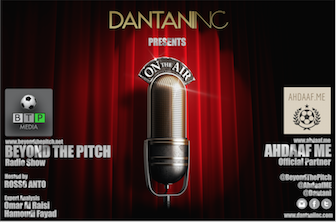-
 FOOTBALL MANAGER 2016: MIDDLE EASTERN VERSION
4 weeks ago
FOOTBALL MANAGER 2016: MIDDLE EASTERN VERSION
4 weeks ago -
 Ahdaaf 2016 Middle East Football Quiz Competition
2 months ago
Ahdaaf 2016 Middle East Football Quiz Competition
2 months ago -
 Qatar’s ‘Kafala’ Reforms Under The Spotlight
4 months ago
Qatar’s ‘Kafala’ Reforms Under The Spotlight
4 months ago -
 TACTICAL ANALYSIS: AL-NASSR 1-1 AL-AHLI
3 weeks ago
TACTICAL ANALYSIS: AL-NASSR 1-1 AL-AHLI
3 weeks ago -
 Ayman Hussein: Iraq’s Olympic Superhero
3 weeks ago
Ayman Hussein: Iraq’s Olympic Superhero
3 weeks ago
FRIDAY WITH… PETER KHALIFE
Immersed in the world of coaching, player-coach Peter Khalife has been taking strides towards improving his younger brother’s footballing skills while studying Lebanese youth teams itself. Peter, Swedish-Lebanese and born in Cyprus, has seen a large difference in youth systems and development squads from Sweden compared to Lebanon, signifying that with no emphasis on youth; Lebanon will not be going places. Peter gives us an insight on his life, what made him coach and how foreign and local coaches adapt to managing a Lebanese team mid-season. He currently plays for Racing, stuck in the relegation zone of the Alfa Lebanese Premier League.
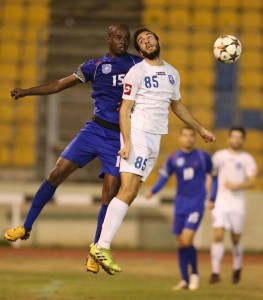
Peter (85) challenges for a header with Emmanuel (15) of Shabab Al-Sahel. Photo Credits: Marina Nasr
- Peter, you spoke to me previously about how you came to Lebanon for a season and was shocked by the level of football you’ve seen. Did that make you want to become a coach?
Actually, I didn’t have any intentions on becoming a coach as it just came to me after googling some training techniques to apply on my brother at home, and after that I took it more seriously and began to observe all the academies in Lebanon and I discovered a huge gap in development. Since then I have been working hard to learn development technique’s for Lebanese Academies.
- What exactly are your goals once you become a coach, into youth or more of adult level football?
To be honest, I find more joy in coaching the youth more as you can see how the child improves over time – but I would still like to manage a big team in Europe one day.
- How was it like with the transfer dealings from Sweden and Lebanon? How did Racing contact you?
I visit Lebanon every summer, so one time my friend David (from England, originally Lebanese) contacted me and asked me if I was interested in signing for a Lebanese team and that’s what happened.
- Are you looking to continue playing football and seek a professional lifestyle in your footballing career?
Yes, of course. I’ve been developing myself recently, leading to lots of people talking about me in a positive way.
- What do you believe is the most important factor for Middle Eastern football to improve? Do you believe it starts from the grassroots, where training for these toddlers and children is almost non-existent here?
First of all, you need the parents’ support. Not all childrens’ parents accept the fact that their children want to become professional football players, instead they keep focusing on studying. I’m not against studying, but it’s nice to have a balance between sports and education. In addition to this, youth development must start at the age of 5. Here in Lebanon we have many academies caring mostly for financial reasons more than caring for youth development. They’ve made it their business investment. So in conclusion; football development should be applied at an early stage and applied properly. Parents should support more while academies should look at developing rather that increasing income.
- Your thoughts on the Lebanese League and how players work two jobs sometimes because of the financial problems, is it that bad?
We have many talented players but too bad there was no development during their youth. This leads to Lebanese teams playing with your basic systems, nothing advanced. All of the teams are almost equally matched. Winning two games can get you into the top 4, but lost the next to and you’re hovering above the relegation zone. The players who work 2 jobs, of course it’s bad. They finish work, drained energy and train with unbalancing their body structures rather than enhancing it. This is why many players get injured easily as the workload is too tough on them.
- Your club has also changed managers 3 times this season, Libor Pala, Josef Petrik and the great Moussa Hojeij – could you tell us about how each one applied a different philosophy, or were they all the same?
I respect all 3 coaches. Libor Pala used to prefer long balls and counter attacks, while Josef Petrik was brought into the middle of the season and that was not a good idea for us and the coach as in my opinion a foreign manager cannot implement his philosophy so easily in such short notice without knowledge of the country or language – especially as his philosophy concerned passing and total football. Moussa Hojeij is back in coaching now, and he wants a fighting and hard working spirit in the team but I believe his knowledge of the league above all will help us.
- If you ever managed a team, what philosophy would you play with? Do you want your players based on fitness and pressing, organisation and compact defending, or freedom of play and attacking football?
I like fitness and pressing since my best aspects in football are my stamina and strength. That would couple up with the attacking football to balance the team, using that energy to an advantage.
- Do you think Giuseppe Giannini with the National team is far behind in making a good connection with the team, or doing well to make it a good philosophy for Lebanon to be remembered with like the days of Theo Bucker?
I think Giuseppe is doing fine. It’s difficult for him since the level of our players is nothing compared to the players in Europe – but with a good system we can get some good results. Theo Bucker knew the players because he managed in the league before, so it was a bit easier for him but both are great men, with great philosophies.
It was a pleasure to cooperate with you Mr. Fayad and i wish you and the website successful years to come.
FOLLOW PETER ON INSTAGRAM: @peterkhalife
- TACTICAL ANALYSIS: AL-NASSR 1-1 AL-AHLI - February 16, 2016
- FOOTBALL MANAGER 2016: MIDDLE EASTERN VERSION - February 6, 2016
- BEST GOALS: AFC U-23 CHAMPIONSHIP - February 3, 2016
- FRIDAY WITH… BILAL AHMAD - January 8, 2016
- TOP 5 GOALS OF THE WEEK: SEASON 1, EPISODE 1 - January 7, 2016
- AHDAAF END OF YEAR AWARDS – 2015 - January 1, 2016
- 2015 REVIEW PODCAST - December 31, 2015
- EP1: MIDDLE EASTERN FOOTBALL PODCAST FT. BEYONDTHEPITCH & DANTANI - December 25, 2015
- BEYOND THE PITCH PODCAST – MIDDLE EASTERN FOOTBALL - December 20, 2015
- Talking Points: Around the Middle East (December 10-15) - December 16, 2015
Similar posts
-
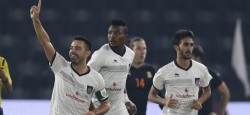 Top 5 Goals of the Week
Top 5 Goals of the Week
TOP 5 GOALS OF THE WEEK: SEASON 1, EPISODE 1
-
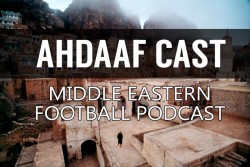 PodcastUncategorized
PodcastUncategorized
2015 REVIEW PODCAST
-
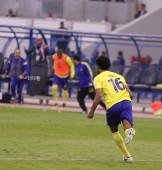 Iraqi Premier LeaguePersian Gulf Pro LeagueQatar Stars LeagueSaudi ALJ League
Iraqi Premier LeaguePersian Gulf Pro LeagueQatar Stars LeagueSaudi ALJ League
Talking Points: Around the Middle East (December 10-15)
-
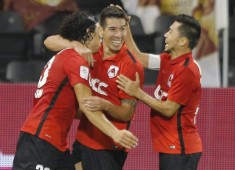 Arabian Gulf LeaguePersian Gulf Pro LeagueQatar Stars LeagueSaudi ALJ League
Arabian Gulf LeaguePersian Gulf Pro LeagueQatar Stars LeagueSaudi ALJ League
VIDEO: Domestic Weekly Review | December 1-5
-
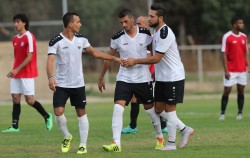 Interviews
Interviews
FRIDAY WITH… ABU BAKR AL-MEL
-
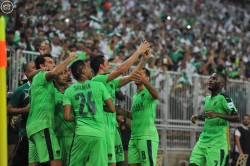 Arabian Gulf LeaguePersian Gulf Pro LeagueQatar Stars LeagueSaudi ALJ League
Arabian Gulf LeaguePersian Gulf Pro LeagueQatar Stars LeagueSaudi ALJ League
VIDEO: Domestic Weekly Review | November 20-25

